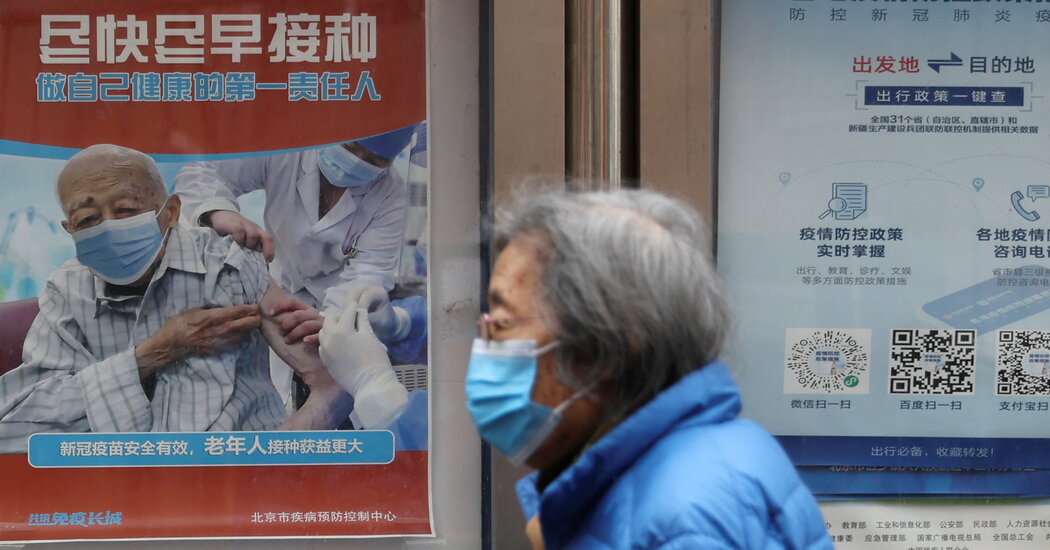Faced with growing social unrest over its strict pandemic measures, China said on Tuesday it would ramp up the vaccination of its oldest citizens, a move experts say is crucial if the world’s second-largest economy is to ease Covid measures and rebuild its economy. want to reopen.
Authorities will deliver vaccines to people in nursing homes, go door-to-door, use mobile vaccination stations and put pressure on those who are hesitant to give a reason, a National Health Commission statement said. About 90 percent of China’s total population is fully vaccinated, but among those aged 80 and older, the numbers are much lower: 65.8 percent are fully vaccinated and only 40 percent have received booster vaccinations.
“It is necessary to speed up vaccination, especially the vaccination of the elderly,” said Xia Gang, a National Health Commission official in charge of vaccination. “I hope that elderly friends will actively complete the vaccination as soon as possible to protect the health of themselves and their families.”
The new initiative was made public Tuesday afternoon ahead of a press conference with officials from China’s top health agencies. News of the briefing sparked rumors that authorities were considering easing testing and isolation requirements, fueling optimism in Asian financial markets that China was ready to move further away from its “zero Covid” rules. While there were no signs of a broader shift, investors seemed relieved that Chinese officials were making some effort.
The market in Hong Kong ended 5 percent higher, while shares in Shanghai and Shenzhen rose more than 2 percent.
Similar optimism fueled a rally in Chinese stocks earlier this month, as investors on Wall Street placed a bet that China would ease its measures amid mounting economic pain. That positive feeling continued as China’s National Health Commission released a series of small changes to narrow the scope of the country’s vast and intrusive pandemic apparatus.
But in the weeks that followed, it became clear that these measures would not amount to a broader shift in “zero Covid” policies, and fears about the effect on the global economy have grown.
China faces a predicament: top leadership recognizes that a blanket approach to contain the virus is taking an increasing economic and social toll, but leaders are concerned that widespread infections will overwhelm a ramshackle healthcare system.
The pressure has become more acute in recent days, with people across China taking to the streets in a rare demonstration of public protest against the strict Covid lockdowns.
Chinese officials regularly point to the country’s vulnerable population – old and very young – as the main reason why the country cannot afford to slow down.
China’s top leader Xi Jinping recently called the “zero Covid” approach an “all-out people’s war to stop the spread of the virus” that has put “the people and their lives above all else.”
Joy Dong contributed reporting from Hong Kong.

